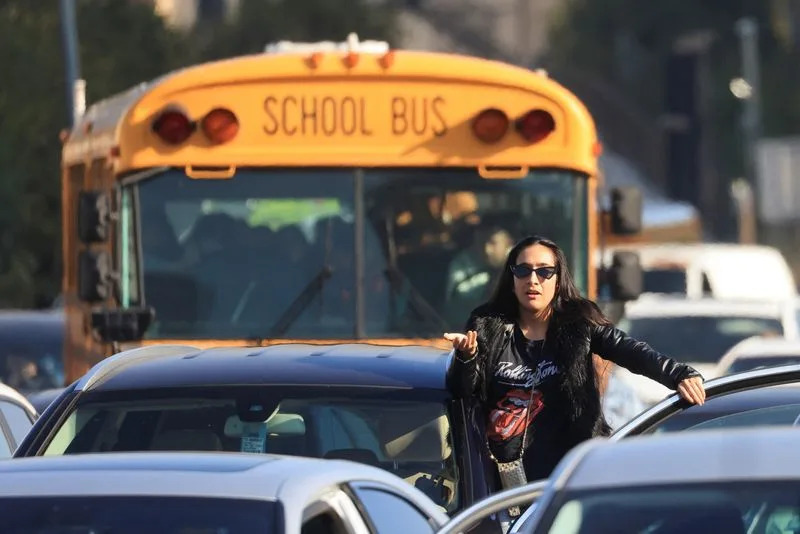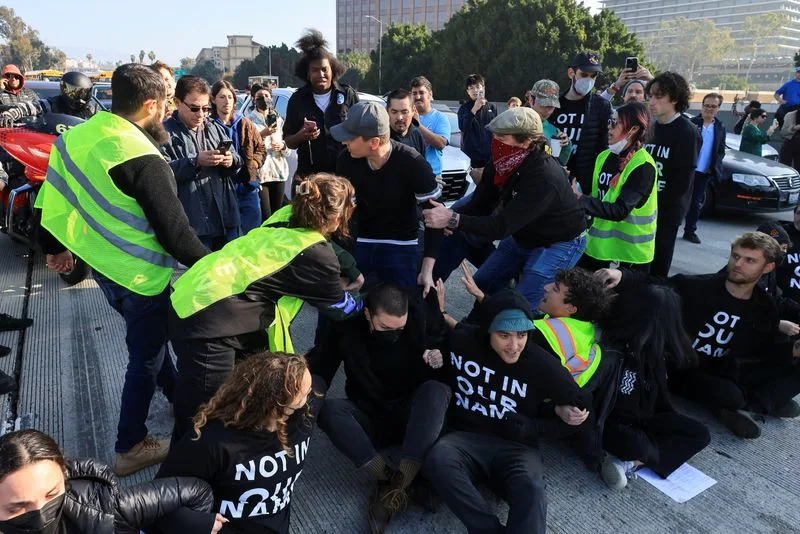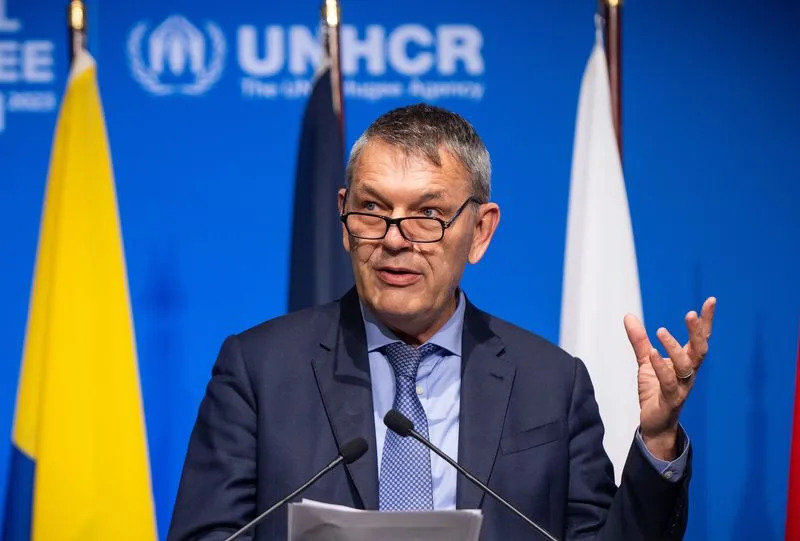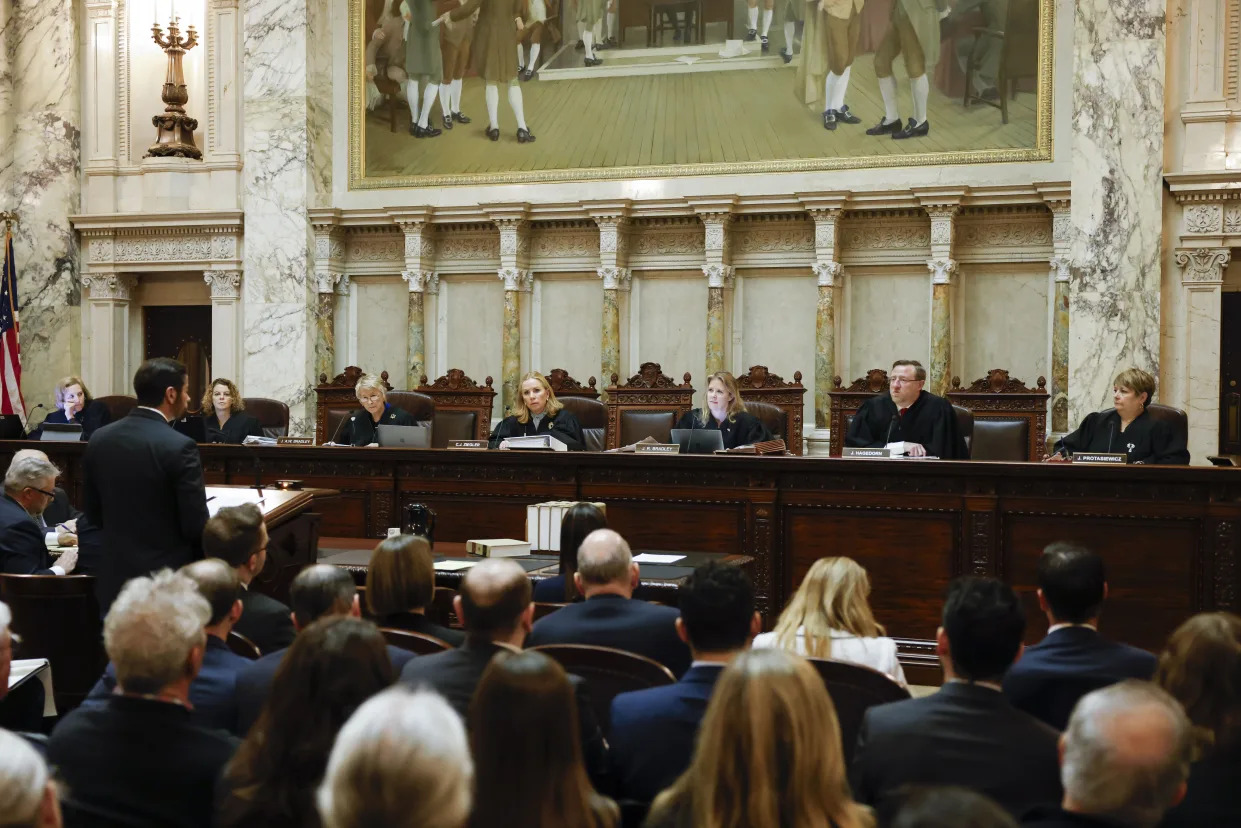Arie Perliger, UMass Lowell
Tue, December 12, 2023

Israeli reservists take a moment to rest in southern Israel on Nov. 13, 2023.
One of the first Israeli government responses to Hamas’ Oct. 7, 2023, surprise attack was the mobilization of about 360,000 reservists into active duty for the Israel military. This amounts to roughly 4% of the nation’s population and boosted the strength of the 170,000 people already serving in the military, either doing compulsory service or as career soldiers.
As someone who has studied Israel’s security policies and society for the last 20 years, I see the rare decision to mobilize more than three-quarters of Israel’s entire reserve forces, as reflecting more than the practical need for soldiers to secure the nation and respond to Hamas’ attacks. I believe the mobilization decision was also intended to signal that Israel is prepared to fight any other potential adversaries who might consider the country vulnerable.
But the success or failure of those efforts depends on whether the unique circumstances of the current conflict can reverse a decadeslong decline in Israelis’ support for a reserve army. My assessment is that in the long term, the importance of the reserves will continue to diminish within Israeli society.
Mandatory military service
All Israeli citizens are required to serve in the military when they are between the ages of 18 and 21 – men for 32 months and women for 24 months. After that service period ends, most of them are required to serve in the reserves, training several weeks a year until their early 40s.
If they are called up for active duty, most reservists are deployed for routine law and order missions in the West Bank and the quieter border areas. Also, elite units of reservists serve as the backbone of the air force and some infantry and armored units.
But changes to the military’s reserve policies means that less than 5% of the country’s population are in the reserves, The New York Times reported in November 2023.
Israel as a ‘garrison state’
At Israel’s founding in 1948, its leaders wanted the country to be prepared for enduring military clashes with its neighbors, with a strong, well-equipped and highly trained military force. But Israel has a relatively small population and limited natural and financial resources. So they chose to form the Israel Defense Forces based on a small standing army largely made up of conscripts, and a much larger reserve force.
With this model, often called a “garrison state” by scholars, the founders believed Israel could fight much larger Arab nations without having to maintain a large standing army, which would tie up both personnel and funding that could undermine the country’s economic development.

Just days after the Hamas attack, people lined up at a Greek airport to fly to Tel Aviv, Israel. The country’s call for reservists brought people from overseas, including volunteers who wanted to join the fight.
Decreasing support for reserves
Massive numbers of reservists were crucial to Israel’s victory over Egypt and Syria in the 1973 Yom Kippur War. But since the 1980s, the Israeli public’s support for a large reserve force has waned.
In part, many Israelis didn’t want to serve in the reserves after they had fulfilled their active-duty obligation. This was because reservists’ duties became more controversial and divisive. A growing number of reservists were assigned to policing and maintaining Israel’s military control of the Palestinian population in the West Bank and, until 2005, also in the Gaza Strip.
In addition, civilian life and military life in Israel were less entwined than they had been in earlier decades. Success in the military service didn’t guarantee prestige and opportunities in the private sector, as it once had. Lastly, the aura of success that surrounded the Israel military faded following its failure in the 1990s and 2000s to effectively reduce growing threats from Hezbollah in Lebanon and Hamas in the Gaza Strip
A return to dependence on reserves
The Oct. 7 attack appears to have restored many Israelis’ support for the reserves. Israelis experienced and view that attack as not just another round of skirmishing between Palestinian terrorists and Israeli forces, but rather as a serious and significant attack on the nation’s existence.
The country’s leaders, including Prime Minister Benjamin Netanyahu, faced immediate and powerful criticism for failing to prevent the Hamas attack and for abandoning civilians who were killed, kidnapped or injured.
The public saw this mobilization, then, as an appropriate response to help ensure the survival of the Jewish state – rather than an act of expanding controversial occupation and security policies.
Moreover, Hamas’ attack mainly targeted civilians, which reminded Israelis of their civic responsibility to defend each other and the nation.
For the most part, Israelis appear to have accepted this message. They continue to blame Netanyahu and his government for the failures that allowed the attack, but agree that the war must come before political repercussions. The formation of a unity government, in which a major opposition party joined the governing coalition for the duration of the war, was one significant political signal of this public sentiment.
At least thousands of Israelis who were not formally mobilized volunteered to return to reserve service, even traveling from their homes in faraway countries.

In August 2023, Brothers in Arms, an Israeli reservists organization, demonstrated against proposed judicial reforms in Israel.
The future of Israel’s reserves
It’s unclear whether the shift in support for the reserves will last beyond this war. Regardless of how – or when – the war ends, Israel’s military occupation and policies in the West Bank will continue to be a source of political division in Israel.
Relatedly, Israel’s reservists have begun to explore the political power their role confers upon them. Netanyahu’s efforts in early 2023 to undermine the nation’s democracy, including by reducing judges’ independence, met widespread public protest. Reservists were prominent in the resistance to Netanyahu’s proposals, even threatening to end their service or resign from the military roles if certain initiatives moved forward.
This article is republished from The Conversation, a nonprofit, independent news organization bringing you facts and analysis to help you make sense of our complex world.
It was written by: Arie Perliger, UMass Lowell.
Read more:
Hamas assault echoes 1973 Arab-Israeli war – a shock attack and questions of political, intelligence culpability
Intelligence failure or not, the Israeli military was unprepared to respond to Hamas’ surprise attack


















